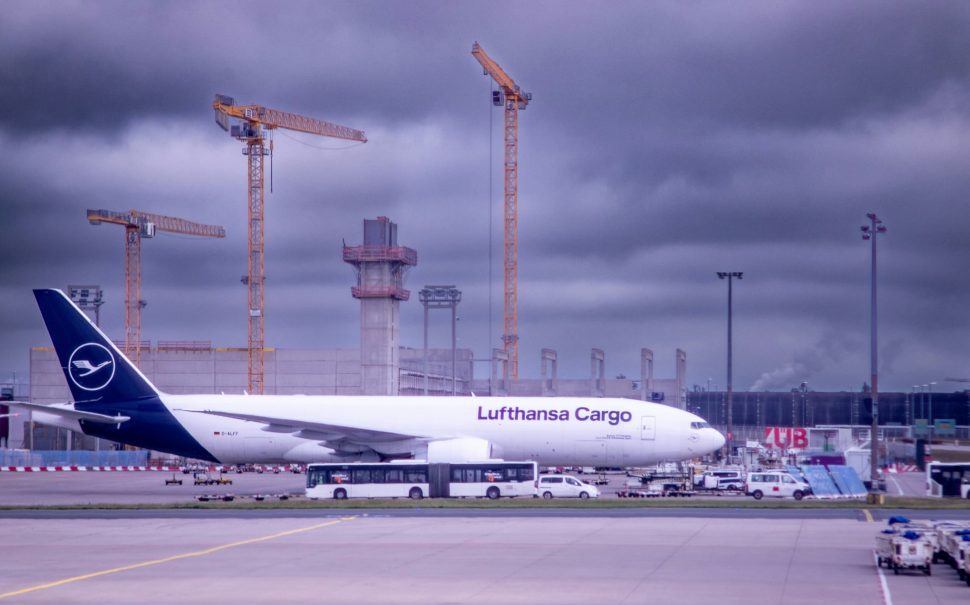London has long been one of the world’s busiest hubs for trade.
From tech start-ups in Shoreditch to established manufacturers in south west London, thousands of businesses rely on overseas markets to grow.
But with global trade comes the challenge of moving goods efficiently, cost effectively, and without unnecessary delays.
International shipping from London businesses is not simply about getting products from A to B.
It is about choosing the right method to suit your budget, timeline, and type of goods.
For many companies, the difference between sea freight, air freight, and road freight can be confusing.
Each option has its advantages, but selecting the wrong one can lead to costly mistakes.
This guide explains the main choices available and how freight forwarders like Barrington Freight can help SMEs across London make the right decision.
Why international shipping matters for London businesses
Brexit has changed the way companies trade with Europe and beyond.
Customs paperwork, new regulations, and longer border checks have added extra complexity for firms that once enjoyed frictionless trade.
Yet the opportunities remain strong.
Many London-based SMEs are now looking further afield, exporting to markets in Asia, North America, and the Middle East.
Importers continue to bring in goods and raw materials from global suppliers.
Reliable international shipping ensures that these businesses can remain competitive and meet customer expectations.
The main shipping methods available
Businesses have three primary options for moving goods internationally: sea freight, air freight, and road freight for Europe.
Sea freight
Sea freight is the most cost-effective method for bulk shipments and is ideal for companies importing or exporting goods outside Europe.
In fact, around 90% of global goods trade is carried by sea freight, making it the backbone of international logistics worldwide
It remains one of the most popular choices for international trade.
- FCL (Full Container Load): when your goods fill an entire container.
- LCL (Less than Container Load): when your goods are consolidated with other shipments in a shared container.
FCL is faster and more secure, while LCL is a flexible and affordable option for smaller loads.
Air freight
Air freight is the fastest method, with goods often arriving within a few days.
It is the best choice for urgent, time-sensitive, or high-value shipments.
However, it comes at a higher cost than sea freight, making it less suitable for large volumes.
While air cargo represents less than 1% of world trade by volume, it accounts for about 35% by value.
Road freight
For companies trading with the EU, road freight is a flexible option offering door to door delivery.
Depending on your shipment size, you can choose between:
- FTL (Full Truck Load) where your goods fill an entire truck.
- LTL (Less than Truck Load) where your goods take up part of the truck’s space.
- Groupage where smaller shipments are consolidated with other customers’ goods.
Road freight provides reliability and convenience, especially for regular cross border trade.
Factors to consider when choosing the best method
When planning international shipping, London businesses should think carefully about:
- Cost. Sea freight is generally the cheapest for bulk shipments, while air freight is the most expensive.
- Speed. Air freight is fastest. Sea and road are slower but more economical.
- Type of goods. Fragile, high value, or urgent goods often require air freight. Durable goods can usually go by sea.
- Destination. For European countries, road freight is often the most efficient. For the rest of the world, sea or air freight will be required.
- Sustainability. Businesses keen to cut their carbon footprint may find sea freight a greener option than air.
Common challenges in international shipping
Shipping goods overseas involves more than simply booking transport.
Businesses must navigate:
- Customs clearance. Ensuring all paperwork is accurate and compliant.
- Delays at ports or borders. Especially since Brexit.
- Hidden costs. For example, storage, demurrage, or incorrect documentation charges.
This is where working with a freight forwarder is invaluable.
They help London SMEs manage customs, consolidate smaller loads, and avoid costly mistakes, while providing clear pricing and reliable updates.
Practical tips for London SMEs
- Plan ahead to avoid peak season surcharges and reduce the risk of delays.
- Use groupage or LCL to cut costs on smaller shipments.
- Stay compliant by making sure customs paperwork is correct from the start.
- Work with a freight forwarder to manage logistics, saving your team time and stress.
Conclusion
International shipping from London businesses is vital for growth in today’s competitive global market.
The choice between sea freight, air freight, and road freight depends on your priorities, whether that is cost, speed, type of goods, or destination.
With the right partner, even small and medium-sized firms can ship worldwide confidently and affordably.
Feature image: Free to use from Unsplash





